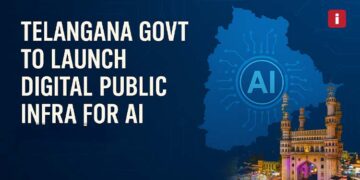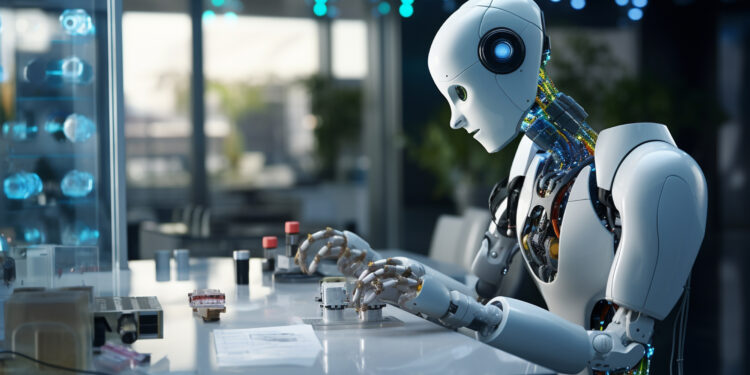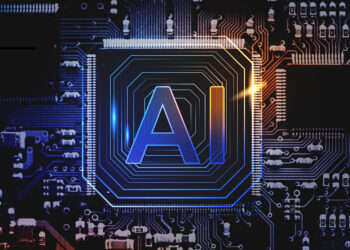Introduction to Robotics and Artificial Intelligence
In today’s rapidly advancing technological landscape, robotics and artificial intelligence (AI) have emerged as two of the most transformative and influential fields. Robotics involves the design, construction, operation, and use of robots, while AI refers to the simulation of human intelligence processes by machines. These technologies are revolutionizing various aspects of our lives, from how we work and communicate to how we interact with our environment.
Current Applications of Robotics and AI
Robotics in manufacturing and automation
Robots have become integral in modern manufacturing processes, where they perform tasks with precision and efficiency. From assembly lines to warehouses, robots handle repetitive and labor-intensive tasks, leading to increased productivity and cost savings for businesses.
AI in healthcare and diagnostics
In the healthcare sector, AI is revolutionizing diagnostics and patient care. Machine learning algorithms analyze medical data to assist doctors in diagnosing diseases, predicting treatment outcomes, and personalizing patient care plans. AI-powered medical devices and virtual assistants are enhancing efficiency and accuracy in healthcare delivery.
Robotics and AI in agriculture and farming
In agriculture, robots are being used for planting, harvesting, and monitoring crop health. Drones equipped with AI algorithms capture aerial images to assess crop conditions and optimize resource allocation. Autonomous vehicles navigate fields, reducing manual labor and increasing agricultural productivity.
The Potential of Robotics and AI in Various Industries
Transportation and logistics
Self-driving vehicles powered by AI are poised to revolutionize transportation systems. Autonomous cars, trucks, and drones promise safer and more efficient mobility solutions, reducing traffic congestion and carbon emissions. AI algorithms optimize route planning and logistics operations, improving supply chain management.
Education and learning
AI technologies are transforming education by personalizing learning experiences and enhancing student engagement. Intelligent tutoring systems adapt to individual learning styles, providing tailored instruction and feedback. Virtual reality (VR) and augmented reality (AR) applications create immersive learning environments, making complex concepts more accessible and interactive.
Entertainment and gaming
In the entertainment industry, AI is driving innovation in content creation, distribution, and user experience. Streaming platforms use AI algorithms to recommend personalized content based on user preferences and viewing history. Game developers employ AI for procedural content generation, character animation, and player behavior prediction, enhancing the realism and immersion of gaming experiences.
Ethical Considerations and Challenges
As robotics and AI technologies continue to advance, they raise important ethical considerations and challenges that must be addressed.
Data privacy and security issues
The collection and analysis of vast amounts of data by AI systems raise concerns about privacy and security. Safeguarding sensitive information and ensuring transparency and accountability in data usage are critical to building trust and mitigating risks associated with AI-driven technologies.
AI bias and discrimination
Bias in AI algorithms can perpetuate existing inequalities and reinforce discriminatory practices. It is crucial to address bias in data collection, algorithm design, and decision-making processes to ensure fairness and equity in AI applications across diverse populations.
The Future of Robotics and AI
The future of robotics and AI holds immense promise for advancing human capabilities and improving quality of life.
Advancements in machine learning and deep learning
Breakthroughs in machine learning and deep learning algorithms are driving rapid progress in AI research and development. Neural networks with enhanced learning capabilities are enabling machines to perform increasingly complex tasks and solve real-world problems with human-like intelligence.
Impact on society and human life
The widespread adoption of robotics and AI technologies will profoundly impact society and human life in the coming decades. From revolutionizing healthcare delivery and transportation systems to reshaping education and entertainment experiences, these technologies will redefine how we live, work, and interact with the world around us.
Conclusion
In conclusion, robotics and artificial intelligence represent the future of mankind, offering unprecedented opportunities for innovation, growth, and progress. However, realizing the full potential of these technologies requires addressing ethical concerns, promoting responsible development and usage, and ensuring equitable access to their benefits. By embracing the transformative power of robotics and AI while safeguarding human values and rights, we can build a brighter and more inclusive future for all.













































